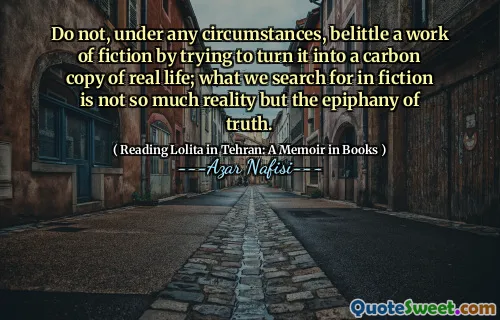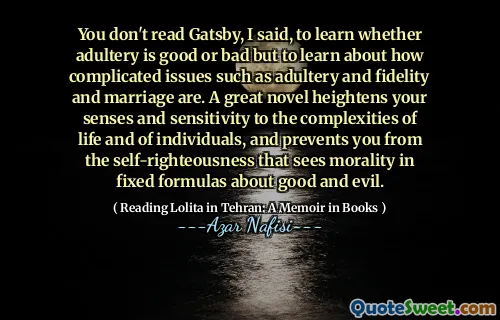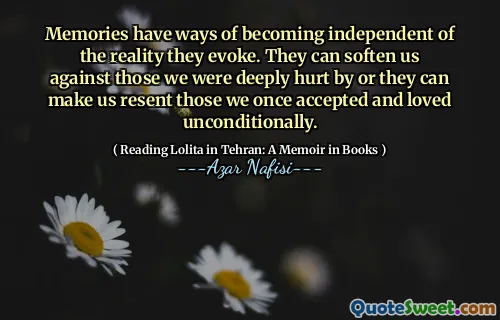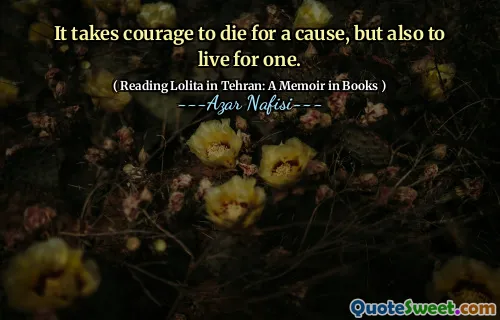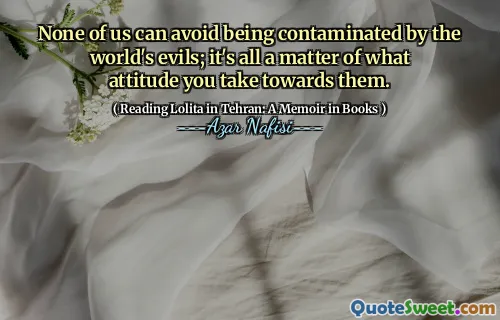
She resented the fact that her veil, which to her was a symbol of her sacred relationship to God, had now become an instrument of power, turning the women who wore them into political signs and symbols. Where do your loyalties lie, Mr. Bahri, with Islam or the state?
📖 Azar Nafisi
In "Reading Lolita in Tehran," Azar Nafisi explores the profound personal significance of the veil for her and other women, highlighting its transformation from a symbol of devotion to a tool for political expression. The veil, once a cherished emblem of their faith and relationship with God, has become a complex sign of conflicting loyalties, entwined with state power and political identity. This shift evokes a sense of resentment in those who wear it, as their personal beliefs are overshadowed by the demands of external authority.
The tension between religious and state identity is further illustrated through the character Mr. Bahri, who is posed with the question of his loyalties. This inquiry reflects the broader struggle faced by individuals in oppressive regimes, where faith may clash with national ideals. Nafisi's narrative invites readers to contemplate the impact of political forces on personal beliefs and the ways in which symbols that once held sacred meaning can be co-opted, causing inner turmoil for those caught in this ideological battle.

